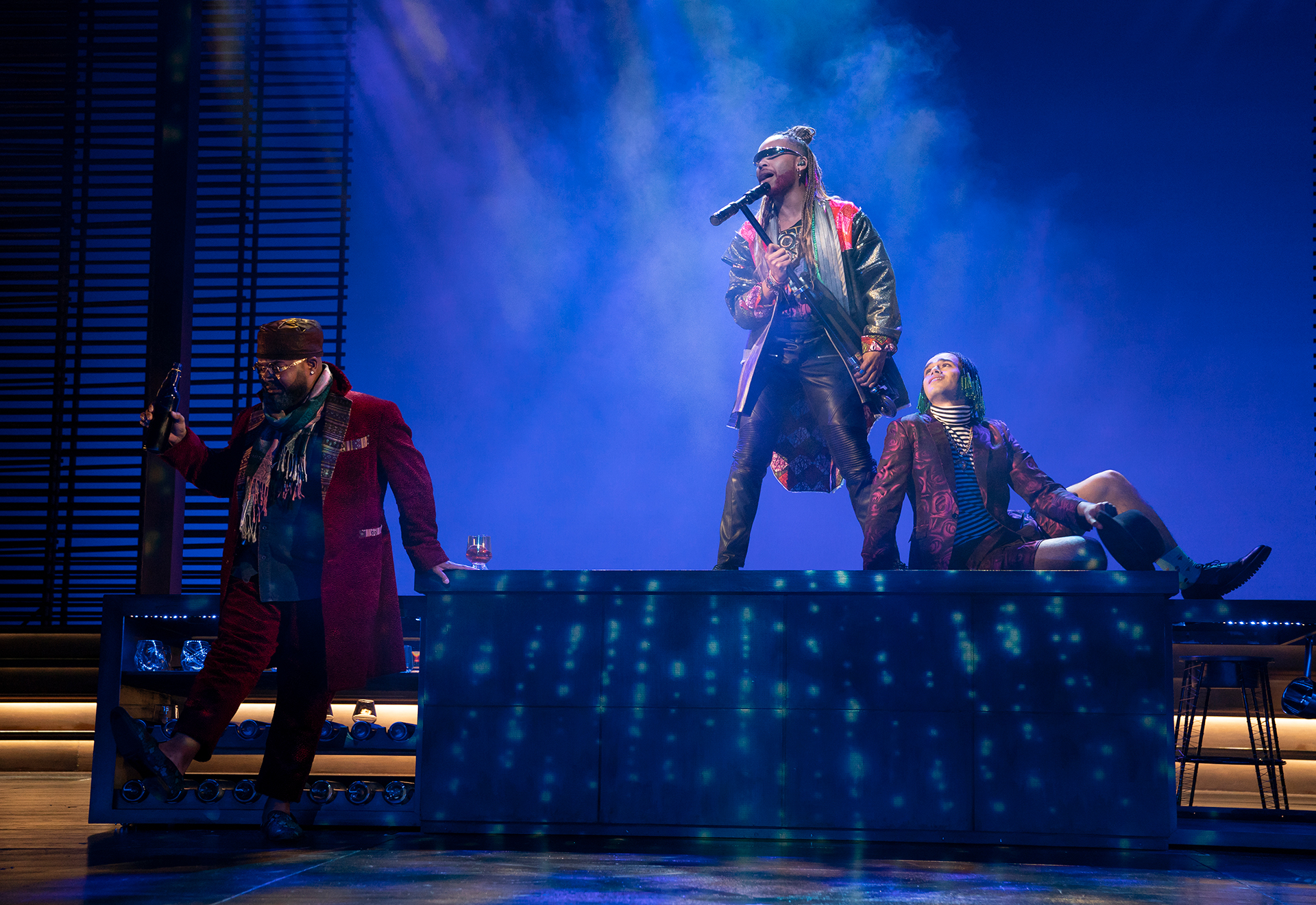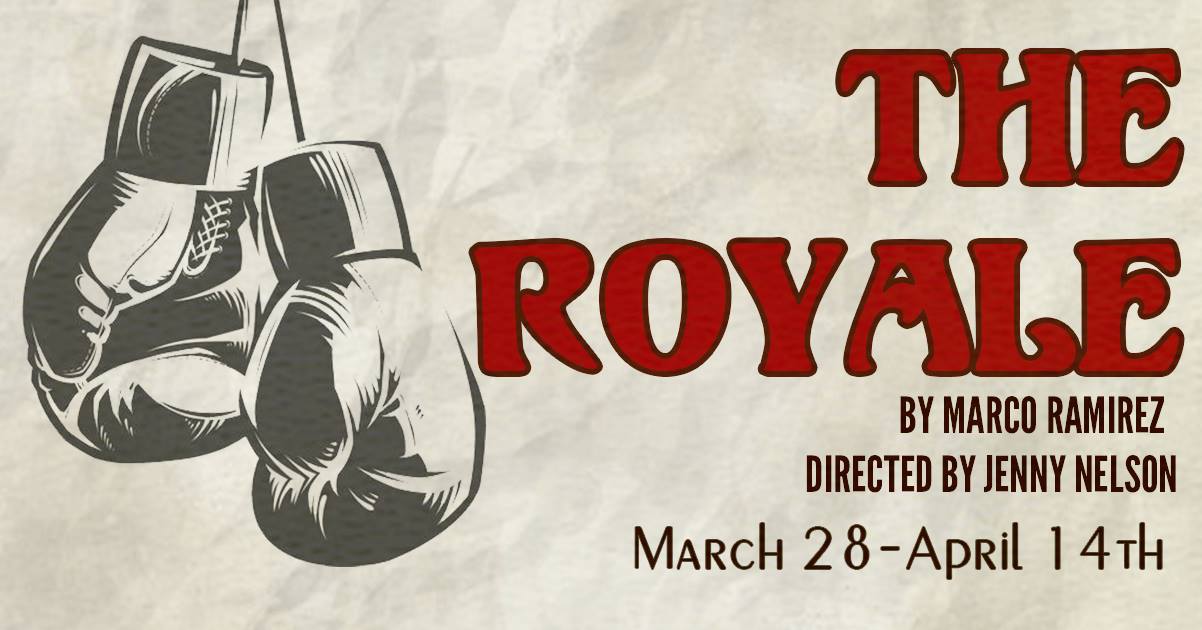Review of Pass Over, Collective Consciousness Theatre
Beneath the skyline of New Haven—look, there’s the Connecticut Financial Center and the Knights of Columbus building and some of Yale’s gothic spires—sits an end-of-the-road alley/corner. Here, two homeless African American teens, Moses (Tenisi Davis) and Kitch (Stephen Gritz King) hangout, making the most of each other’s company as, seemingly, the only surviving family either has. The tone of their exchanges is familiar and jokey, full of the banter of brothers. In Pass Over, now playing for one more weekend at Collective Consciousness Theatre at Erector Square, playwright Antoinette Nwandu achieves a poetic language that feels real but that is also stylized in interesting, ear-catching ways. Put simply, the two youths are street poets and listening to them entertain each other is very entertaining.
But there’s a sense of dejection as well. While the occasional burst of a police siren inspires quick postures of defense or concealment, these two live in constant denial of how dire their circumstances are. They like to play a wish-fulfillment game called “Promised Land Top Ten,” an enumerated list of ten comforts that either might hope to find having “passed over” into the promised land.
Directed by Jenny Nelson, Davis and King have a cautious and canny directness, an innocence that is reassuring, given their circumstances, and, deliberately, a hint of the existentialist gallows humor of Beckett’s Waiting for Godot. Which means that the repetitious routines the duo indulge in are Nwandu’s way of equating the bleak lack of prospects of Beckett’s post-war tramps with two urban outsiders who have survived—so far—a general war upon nonwhite populations. At the same time, the script eschews any sense of deliberate echo (as, for instance, having the two wait for a connection for a job or drugs or a communication) to let us ponder what passing time to no purpose feels like.
At last someone does turn up. Mister (Griffin Kulp) is a gosh and golly caricature of a privileged white, complete with picnic basket, who has strayed into an unfamiliar part of town. The interaction with Mister can feel a bit overly cautious, as if some kind of street cred test is being faced simply by talking to, much less taking food from, such an offensively benign figure. Moses, the one more concerned with his image and—perhaps—a sense of dignity that comes with his name, finds Kitch’s eager and obsequious attitude an affront. And so the scene plays out comically with any possible understanding on either side buried under layers of awkward pretense.
Left to their own devices again, the pay-off is Moses trying to school Kitch in how to sound white. The realization has dawned that their preference for identifying themselves and each other by what Mister euphemistically calls “the n-word” makes them sound suspect. As if to prove this point, a cop called Ossifer (Kulp) shows up and is at first fooled by the boys’ new tone, only to become even more hostile when he sees them as the hapless street kids they are. The scene plays out as (almost) the worst of their nightmares since nothing they can say for themselves can appease a judge who would convict them simply for being themselves.
The play’s conclusion is swift and comes with a shock. The tragedy for Moses and Kitch, Nwandu says, is not simply due to the fact that police mistreat and abuse African Americans, but because the society Mister represents requires a bullying wall between the whites’ complacent abundance and everyone they exclude. The conclusion is fully in-keeping with Nwandu’s gift for emblematic theater.
In essence, Pass Over is a morality play in which a hell-on-earth is contrasted with the promised land of the boys’ imagination and in which the trials of this life—in the form of empowered white men—are figures for temptation: the temptation of assimilation, the temptation of subservience, the temptation of uprising. In the latter case, the act of violence comes from daring to stop waiting for nothing in an effort to pass over to a better future.
Another strong installment in the Collective Consciousness repertoire, Pass Over marks the welcome return of Tenisi Davis, who memorably played the mercurial Booth in 2017’s Topdog/Underdog and of director Jenny Nelson whose bracing staging of Marco Ramirez’s The Royale closed the 2018-19 season. First produced in 2017, Pass Over provides a contemporary play that has much to say to many American cities, like New Haven, where the racial divide runs deep.
Pass Over
By Antoinette Nwandu
Directed by Jenny Nelson
Stage Manager: Ashley Sweet; ASM/Propsmaster: Molly Flanagan; Set Design: David Sepulveda, Jamie Burnett and Amie Zinder; Lighting Design: Jamie Burnett; Costume Design: Carol Koumbaros; Sound Design: Tommy Rosati; Producer: Dexter J. Singleton
Cast: Tenisi Davis, Stephen Gritz King, Griffin Kulp
Collective Consciousness Theatre
October 24-November 10, 2019








